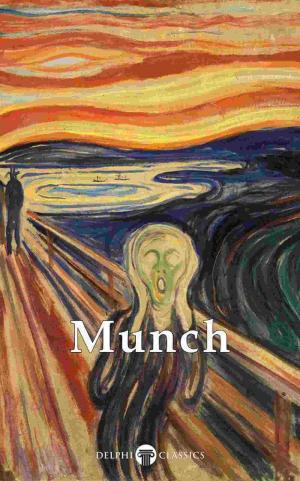Hack Writing & Other Stories
Nonfiction, Reference & Language, Transportation, Biography & Memoir, Literary, Art & Architecture, General Art| Author: | Jack Clark | ISBN: | 9781477614624 |
| Publisher: | Jack Clark Ink | Publication: | July 20, 2016 |
| Imprint: | Language: | English |
| Author: | Jack Clark |
| ISBN: | 9781477614624 |
| Publisher: | Jack Clark Ink |
| Publication: | July 20, 2016 |
| Imprint: | |
| Language: | English |
These 17 stories first appeared in the Chicago Reader.
From the Back Cover:
The center of attention is a young man with at least twenty stab wounds in his chest. He looks scared all right, but even more than that he looks poor. Dressed in the clothes they died in, they all look poor . . . After they are wheeled into the hallway and their clothes cut off it's easier to look at them. Then they are just dead bodies and it's possible to imagine them as once being alive. Thrown together in the freezer they could never be anything but what they are: a group portrait of death on the city's streets.
---from The Cook County Death Trip
*"The only question the police asked me was: 'Are you the cabdriver?' I said: 'Yes,' and that was the one word I spoke. The next thing, I was frisked, put in the police car and wasn't told what I was charged with or nothing. Every time I opened my mouth, I was told to shut up. They didn't tell me a doggoned thing except 'Hey, that's Dan Rather. You're in big trouble.' So they printed me, mugged me and put me in a cell." *---from Hack Writing
*This is such a typical Chicago scene they should use it on the city Christmas cards: a snowplow sitting near a doughnut shop or a convenience store waiting for snow that seldom comes. The drivers must get bored. The city should find something useful for them to do to pass the time. Maybe they could knit mittens for the meter maids, or answer nonemergency phone calls, or wash and wax Resident Only parking signs. *--- from The Bus Stops Everywhere
But sometimes late on a quiet night, in the lull between the songs, you can almost feel the past trying to speak. Maybe that's the mysterious allure of the place. The ghosts of all those drinkers--some for a single shot, some for 20 years--fusing with the booze and the music, the talk and laughter, old stories and new, until finally those larger-than-life figures come down from the wall. Some nights you can almost see them at the bar in that misty amber light. ---from Obituary for a Saloon
The race angle in the city's long-running feud with the taxi industry is just a smoke screen. The mayor can pretend to be on the side of the poor and look like he's fighting discrimination, but behind the scenes the skids are greased for developers and real estate speculators, who've been getting rich pushing the poor and lower middle class from one neighborhood to another for decades. The real tragedy of Humboldt Park is not its current lack of taxis. It's the glut of cabs that will soon arrive as the trendy lakefront expands farther west, pushing the poor and the lower middle class out of yet another neighborhood. ---from Newspaper Boxes, Taxicab Myths
Once a month, a Social Security check is dropped in my mailbox. I add it to a stack on the bookcase. There are 30 checks to date . . . made out to my friend Sam Sarac. His picture is on a photocopy of an immigration document that I keep on the same shelf. The document is from 1964. I assume the photo is from that same year, when Sam was granted permanent resident status after entering the U.S. in 1961... Every check is like another nail in Sam's coffin, and I've got $11,000 worth of checks so far. He must be dead, I keep telling myself. It's undoubtedly the most money he's ever had to his name.
--- from Lost Cities
These 17 stories first appeared in the Chicago Reader.
From the Back Cover:
The center of attention is a young man with at least twenty stab wounds in his chest. He looks scared all right, but even more than that he looks poor. Dressed in the clothes they died in, they all look poor . . . After they are wheeled into the hallway and their clothes cut off it's easier to look at them. Then they are just dead bodies and it's possible to imagine them as once being alive. Thrown together in the freezer they could never be anything but what they are: a group portrait of death on the city's streets.
---from The Cook County Death Trip
*"The only question the police asked me was: 'Are you the cabdriver?' I said: 'Yes,' and that was the one word I spoke. The next thing, I was frisked, put in the police car and wasn't told what I was charged with or nothing. Every time I opened my mouth, I was told to shut up. They didn't tell me a doggoned thing except 'Hey, that's Dan Rather. You're in big trouble.' So they printed me, mugged me and put me in a cell." *---from Hack Writing
*This is such a typical Chicago scene they should use it on the city Christmas cards: a snowplow sitting near a doughnut shop or a convenience store waiting for snow that seldom comes. The drivers must get bored. The city should find something useful for them to do to pass the time. Maybe they could knit mittens for the meter maids, or answer nonemergency phone calls, or wash and wax Resident Only parking signs. *--- from The Bus Stops Everywhere
But sometimes late on a quiet night, in the lull between the songs, you can almost feel the past trying to speak. Maybe that's the mysterious allure of the place. The ghosts of all those drinkers--some for a single shot, some for 20 years--fusing with the booze and the music, the talk and laughter, old stories and new, until finally those larger-than-life figures come down from the wall. Some nights you can almost see them at the bar in that misty amber light. ---from Obituary for a Saloon
The race angle in the city's long-running feud with the taxi industry is just a smoke screen. The mayor can pretend to be on the side of the poor and look like he's fighting discrimination, but behind the scenes the skids are greased for developers and real estate speculators, who've been getting rich pushing the poor and lower middle class from one neighborhood to another for decades. The real tragedy of Humboldt Park is not its current lack of taxis. It's the glut of cabs that will soon arrive as the trendy lakefront expands farther west, pushing the poor and the lower middle class out of yet another neighborhood. ---from Newspaper Boxes, Taxicab Myths
Once a month, a Social Security check is dropped in my mailbox. I add it to a stack on the bookcase. There are 30 checks to date . . . made out to my friend Sam Sarac. His picture is on a photocopy of an immigration document that I keep on the same shelf. The document is from 1964. I assume the photo is from that same year, when Sam was granted permanent resident status after entering the U.S. in 1961... Every check is like another nail in Sam's coffin, and I've got $11,000 worth of checks so far. He must be dead, I keep telling myself. It's undoubtedly the most money he's ever had to his name.
--- from Lost Cities















